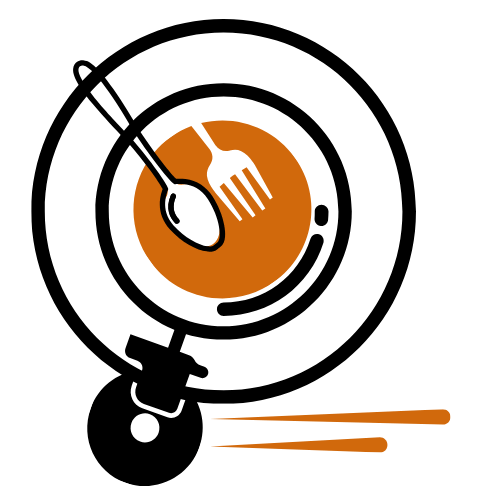bodybuilding & Fitness
Eating for Muscle: A Comprehensive Guide to Bodybuilding Nutrition
Eating for Muscle: A Comprehensive Guide to Bodybuilding Nutrition
When it comes to building muscle, nutrition plays a crucial role in the process. A well-planned diet can help you achieve your bodybuilding goals, while a poor diet can hinder your progress. In this comprehensive guide, we’ll dive into the world of bodybuilding nutrition, exploring the key principles, tips, and strategies to help you fuel your muscles for optimal growth and development.
Bodybuilding nutrition is not just about consuming a lot of protein and calories, but about making informed decisions about the types of foods you eat, when you eat them, and how you portion your meals. With so much misinformation and conflicting advice out there, it’s easy to get confused and overwhelmed. That’s why we’ve put together this comprehensive guide to help you navigate the world of bodybuilding nutrition and make the right choices for your goals.
Eating for muscle
Section 2: The Fundamentals of Bodybuilding Nutrition
At its core, bodybuilding nutrition is about fueling your body with the right combination of macronutrients: protein, carbohydrates, and fat. These three macronutrients play critical roles in supporting muscle growth and development.
Protein is the most important macronutrient for bodybuilders, as it provides the building blocks for muscle growth and repair. Aim to consume 1.2-1.6 grams of protein per kilogram of body weight daily, spread across 3-5 main meals and 2-3 snacks.
Carbohydrates are the body’s primary source of energy, and they’re essential for high-intensity workouts and daily activities. Focus on complex carbohydrates like whole grains, fruits, and vegetables, which provide sustained energy and fiber.
Fat is an important source of energy and supports hormone production. Include sources of healthy fats like nuts, seeds, avocados, and olive oil in your diet.
Section 3: Meal Planning and Portion Control
Meal planning and portion control are critical components of bodybuilding nutrition. To achieve your goals, you need to be intentional about the foods you eat and the amounts you consume.
Aim to eat 5-6 main meals and 2-3 snacks daily, spaced out every 2-3 hours. This ensures a steady supply of nutrients and energy throughout the day.
Portion control is crucial to avoid consuming excessive calories and macronutrients. Use a food scale or measuring cups to portion your meals, and focus on whole foods like meats, vegetables, and whole grains.
Section 4: Supplements and Additives
While supplements and additives can be helpful, they should not replace whole foods in your diet. Focus on whole foods first, and then consider adding supplements to support your goals.
Protein powder is a popular supplement among bodybuilders, as it provides a convenient and high-protein snack. Look for whey protein isolate or micellar casein for optimal results.
Creatine and HMB are two supplements that can help improve strength and endurance during workouts. Consult with a healthcare professional before adding these supplements to your regimen.
Electrolyte supplements like branched-chain amino acids (BCAAs) can help replenish essential minerals and support muscle function during intense workouts.
e
Section 5: Common Mistakes to Avoid
Bodybuilding nutrition is not without its challenges, and it’s easy to make mistakes that can hinder your progress. Here are some common mistakes to avoid:
Avoid overrelying on protein powder and neglecting whole foods. Protein powder is a supplement, not a replacement for whole foods.
Don’t skimp on carbohydrates, as they provide essential energy for workouts and daily activities. Focus on complex carbohydrates like whole grains, fruits, and vegetables.
Avoid overeating, as excessive calories and macronutrients can lead to weight gain and hinder muscle growth. Practice portion control and listen to your body’s hunger cues.
Section 6: Advanced Nutrition Strategies
For advanced bodybuilders, it’s essential to take your nutrition to the next level by incorporating advanced strategies and techniques. Here are some tips to help you take your nutrition to the next level:
Implement a periodized nutrition plan, adjusting your macronutrient ratios and portion sizes based on your workout goals and phase.
Experiment with intermittent fasting, which involves restricting your eating window to specific hours of the day. This can help improve insulin sensitivity and fat loss.
Consider working with a nutrition coach or registered dietitian to develop a personalized nutrition plan tailored to your specific needs and goals.
Conclusion
<p><p><p>Eat</p> <p>ing for muscle requires a comprehensive approach to nutrition, involving a combination of macronutrient balance, meal planning, and portion control. By avoiding common mistakes and incorporating advanced strategies, you can fuel your body for optimal muscle growth and development. Remember to always prioritize whole foods and consult with a healthcare professional before adding supplements to your regimen. With patience, consistency, and the right guidance, you can achieve your bodybuilding goals and build the strong, lean physique you desire.
[ad_2]
